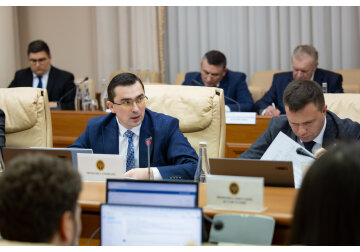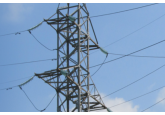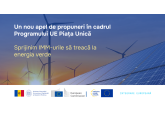
Government of Moldova approved the Regulation on Emergency Situations in the Electricity Sector and its Crisis Management Plan
It is envisaged that these Cabinet-approved documents will help strengthen the authorities' ability to respond to risks in the electricity sector through a clear legal framework for crisis prevention and management. The Electricity Sector Crisis Action Plan includes 31 crisis scenarios and measures to prevent or mitigate possible exceptional situations in the electricity sector. The document details proactive measures and response measures for each scenario depending on the decisive factor: fuel shortage, electricity market failure, malicious attack, extreme weather conditions and others. In one possible scenario involving a general shortage of fuel supply, producers will ensure that available production capacity is maximized and that all generating capacity is mobilized. The transmission system operator will also request assistance from operators in neighboring countries, according to bilateral agreements. At the same time, protection of priority consumers - health centers, kindergartens and schools - is foreseen so that essential social services are not interrupted. Another scenario describes the overloading of power grids due to the use of electric devices for heating. In this case, the authorities will take measures to redistribute grid loads, reinforce low-voltage networks and implement demand management programs. In case of damage to the transmission infrastructure, measures will be implemented to quickly restore transmission lines and redistribute energy flows within the interconnected networks, including by utilizing available capacity through the ENTSO-E European network of transmission system operators. In addition, the plan emphasizes the importance of regional cooperation and integration in the European energy market. Coordinated measures with neighboring countries will contribute to crisis prevention and effective crisis management. Crisis management will be ensured by the Energy Ministry, the National Energy Regulatory Agency, electricity transportation and distribution operators, as well as the Commission for Emergency Situations. According to the Government, Moldova, although it has made significant achievements in the energy sector, such as the construction of the Iasi-Chisinau gas pipeline, synchronization of the energy system with ENTSO-E and initiation of interconnection projects with Romania, remains vulnerable. The own production capacity covers 23% of the right bank's needs, while 70% of electricity consumption depends on production at Moldavskaya GRES located in the Transnistrian region. In addition, the technical import capacity guaranteed by ENTSO-E is currently limited to 315 MW, which is insufficient to meet total demand. Interconnection projects such as the 400 kV Vulcanesti-Chisinau and Balti-Suceava lines are currently being implemented, which will improve the situation, but this will not happen before the end of 2025. // 11.12.2024 - InfoMarket.







